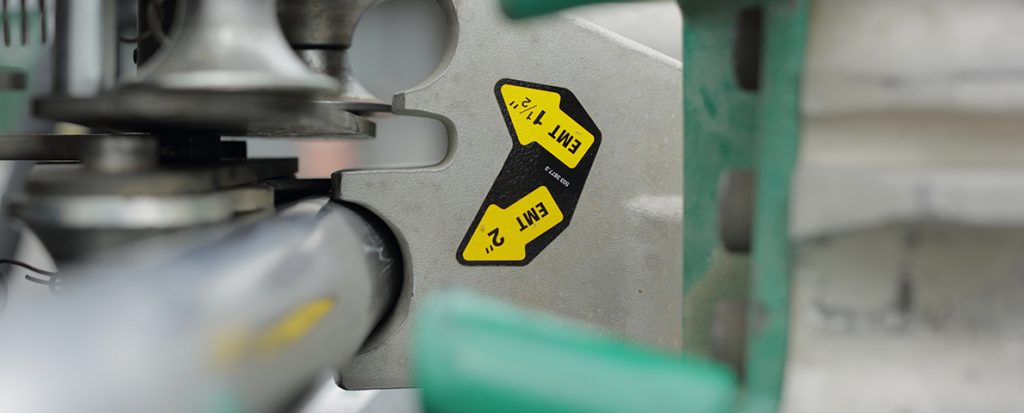Have you ever considered EMT vs. rigid conduit? Which one will be the better choice for your upcoming project? No matter what kinds of questions you might have, the experts with American Conduit will have the answers. We’ve manufactured aluminum conduit for nearly four decades, and we have a team of professionals who know everything there is to know about it. We’ll take the time to listen to your needs, and then suggest the product that will be the best possible fit for your project.
EMT Conduit
 Electrical metallic tubing, or EMT, is also known as “thin-walled” tubing. It’s a very cost-effective method of protecting wires and cabling from physical damage. If you have any sort of exposed wiring, EMT will help ensure it stays safe and secure. Because it has thin walls, EMT is better suited for indoor uses. However, there are some instances where you can use it outside. You just need to make sure all fittings and clamps are made from corrosion resistant materials.
Electrical metallic tubing, or EMT, is also known as “thin-walled” tubing. It’s a very cost-effective method of protecting wires and cabling from physical damage. If you have any sort of exposed wiring, EMT will help ensure it stays safe and secure. Because it has thin walls, EMT is better suited for indoor uses. However, there are some instances where you can use it outside. You just need to make sure all fittings and clamps are made from corrosion resistant materials.
Rigid Conduit
Rigid conduit has much thicker walls than EMT, and is more expensive as a result. But the thickness of rigid conduit makes it perfect for outdoor installation. Rigid conduit will continue to do its job, even in extreme weather conditions.
The Many Advantages of Aluminum
You may already have an idea of aluminum conduit, but you haven’t used it before because you assume steel is the better choice. Actually, the opposite is true. Regardless of what kind of work environment you may have, aluminum will be superior to steel in all areas. These are just some of the reasons why this is the case.
- Weight – Aluminum is one-third lighter than steel, resulting in savings on materials as well as labor. You’ll pay up to 20 percent less per foot, and you won’t need as many workers to maneuver or install aluminum.
- Ease of machining – Aluminum is much easier to bend, cut, drill, punch or mill. Instead of having to buy special tools, you can work aluminum using the equipment you very likely already have on hand.
- Durability and strength – Even though aluminum is lightweight, it’s amazingly strong. During extremely cold weather, aluminum actually gains strength. Steel, on the other hand, can become brittle.
- Shielding properties – Cables and wiring can emit electromagnetic radiation that can damage sensitive electronic components. Aluminum shields electrical equipment from that radiation.
- Corrosion resistance – When aluminum is exposed to oxygen, it forms a thin layer of aluminum oxide. This protects aluminum from corrosion. We use alloys that not only increase the strength of our aluminum conduit, but also add an extra layer of corrosion resistance. Steel, on the other hand, will degrade over time, putting your valuable wiring at risk in the process.
- Conductivity properties – Aluminum does an excellent job of conducting electricity as well as heat. It will always be safe to handle, even on the hottest or coldest days.
We’d Love to Hear From You
Whether you’re comparing EMT vs. rigid conduit, or you want to learn more about why aluminum is better than steel, get in touch with the professionals at American Conduit. We’ll be more than happy to answer any questions you may have, and help you make the right decisions. You can contact us online or give us a call at 1-800-334-6825.

